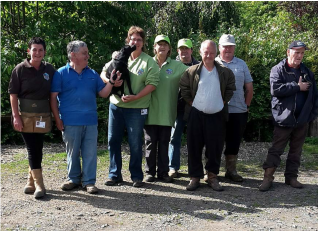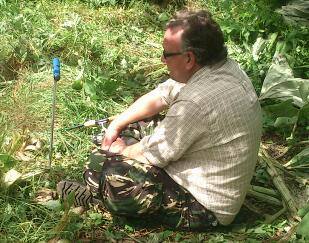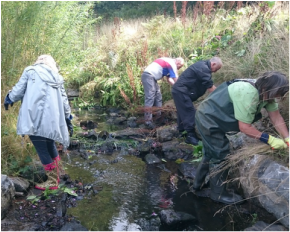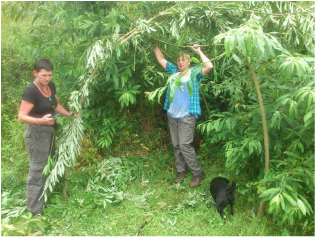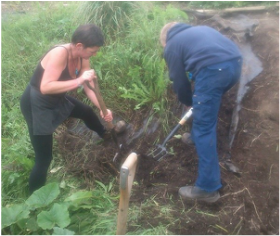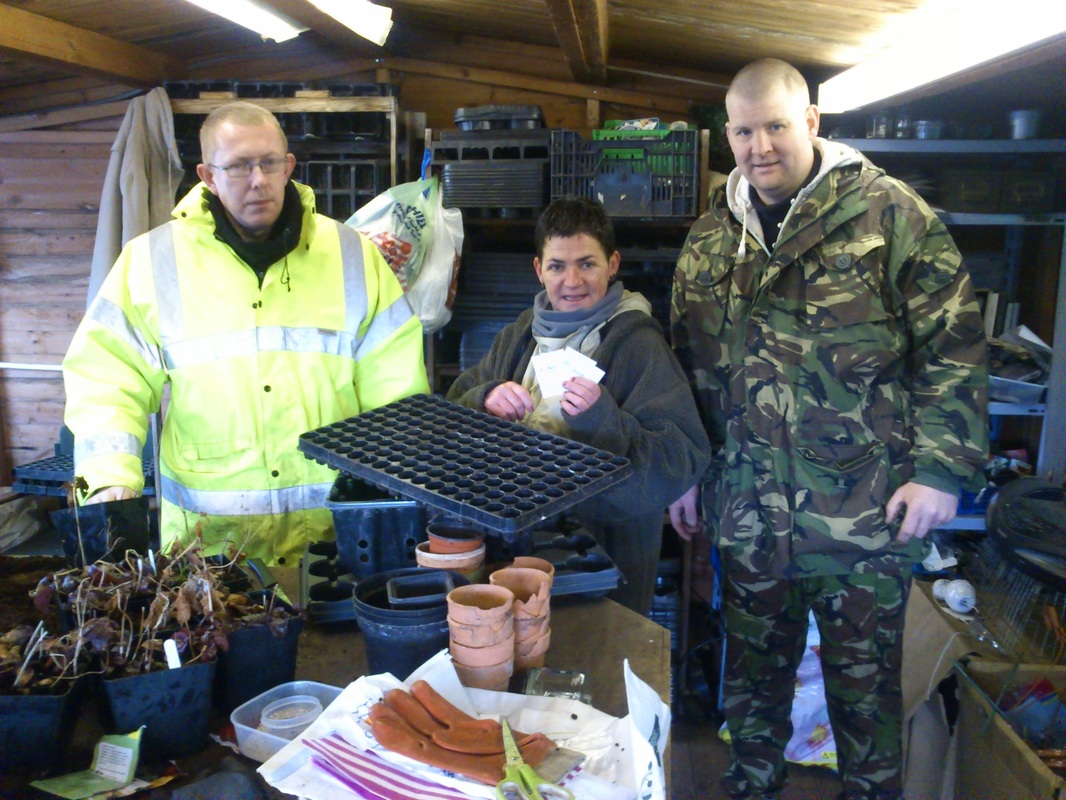Why Horticulture?
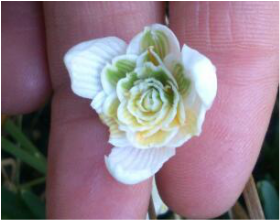
LionMouth Rural Centre is situated on 7 acres of land, comprising of demonstration gardens, mixed woodland, river bank and meadows. Service users can learn the basics of garden maintenance such as tending the lawns and tidying borders, or expand their knowledge in areas such as soil types, composting and pruning. In the greenhouse and potting shed, there is space to learn how to cultivate seedlings and nurture plants, whilst the market-gardening beds offer a chance to grow fruit and vegetables.
We recognise that horticulture is beneficial for everyone who participates regardless of age, ability and skill level, and seek to include people from all walks of life, sharing knowledge and experience.
Horticulture as a therapeutic activity is now much more widely recognised and promoted.
It promotes better physical health –
Gardening is a form of exercise which can be used in rehabilitation, rebuilding strength after an accident or illness. It has been shown it can help improve bone density in older people and can help us in tackling problems such as obesity which can lead to more serious problems such as diabetes.
It improves psychological health –
A wealth of evidence outlines the positive aspects of gardening on our mental health including its ability to help us with optimism, offering a regular routine, a sense of purpose and achievement. For those who garden in a
group there can be additional positive effects on their self-esteem and self-worth.
It offers social benefits –
It has been reported that those who have greater social contact feel healthier. Gardening offers a sustainable interest which can help people to connect with others and for some, irrespective of age, an opportunity to improve social and communication skills.
It provides an opportunity for qualifications and skills –
A recognised horticultural qualification can increase the chances of employment. Taking part in structured gardening activities offers the opportunity to improve skills such as initiative, co-operation, patience, concentration as well as numeracy and literacy all of which are useful in all areas of life.
It offers access to the natural environment –
Research in environmental psychology shows that the natural environment promotes recovery from stress and helps to restore the ability to focus attention. Gardens provide restorative environments. Being outside, getting fresh air and seeing things grow are important to us as human beings. Gardening allows us to connect with nature.
LionMouth is large and allows opportunities for innovative projects. Join us to experience the rich diversity of gardening.
Learn to live within the natural world.
Enjoy the company of birds, bees, and bugs as they help in the garden.
Become part of our team enjoying all aspects of horticulture from seed sowing to growing and harvesting crops.
We recognise that horticulture is beneficial for everyone who participates regardless of age, ability and skill level, and seek to include people from all walks of life, sharing knowledge and experience.
Horticulture as a therapeutic activity is now much more widely recognised and promoted.
It promotes better physical health –
Gardening is a form of exercise which can be used in rehabilitation, rebuilding strength after an accident or illness. It has been shown it can help improve bone density in older people and can help us in tackling problems such as obesity which can lead to more serious problems such as diabetes.
It improves psychological health –
A wealth of evidence outlines the positive aspects of gardening on our mental health including its ability to help us with optimism, offering a regular routine, a sense of purpose and achievement. For those who garden in a
group there can be additional positive effects on their self-esteem and self-worth.
It offers social benefits –
It has been reported that those who have greater social contact feel healthier. Gardening offers a sustainable interest which can help people to connect with others and for some, irrespective of age, an opportunity to improve social and communication skills.
It provides an opportunity for qualifications and skills –
A recognised horticultural qualification can increase the chances of employment. Taking part in structured gardening activities offers the opportunity to improve skills such as initiative, co-operation, patience, concentration as well as numeracy and literacy all of which are useful in all areas of life.
It offers access to the natural environment –
Research in environmental psychology shows that the natural environment promotes recovery from stress and helps to restore the ability to focus attention. Gardens provide restorative environments. Being outside, getting fresh air and seeing things grow are important to us as human beings. Gardening allows us to connect with nature.
LionMouth is large and allows opportunities for innovative projects. Join us to experience the rich diversity of gardening.
Learn to live within the natural world.
Enjoy the company of birds, bees, and bugs as they help in the garden.
Become part of our team enjoying all aspects of horticulture from seed sowing to growing and harvesting crops.
